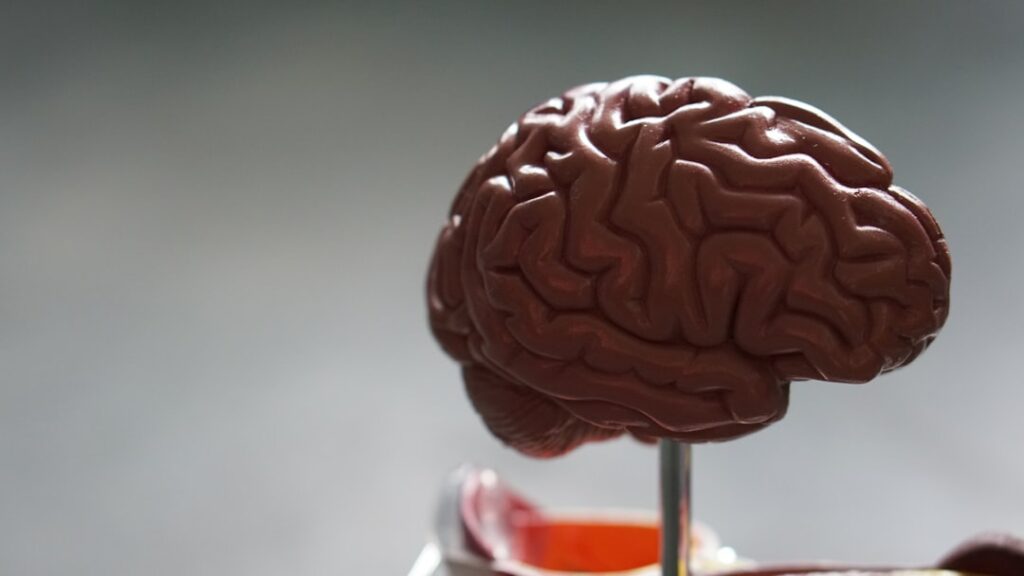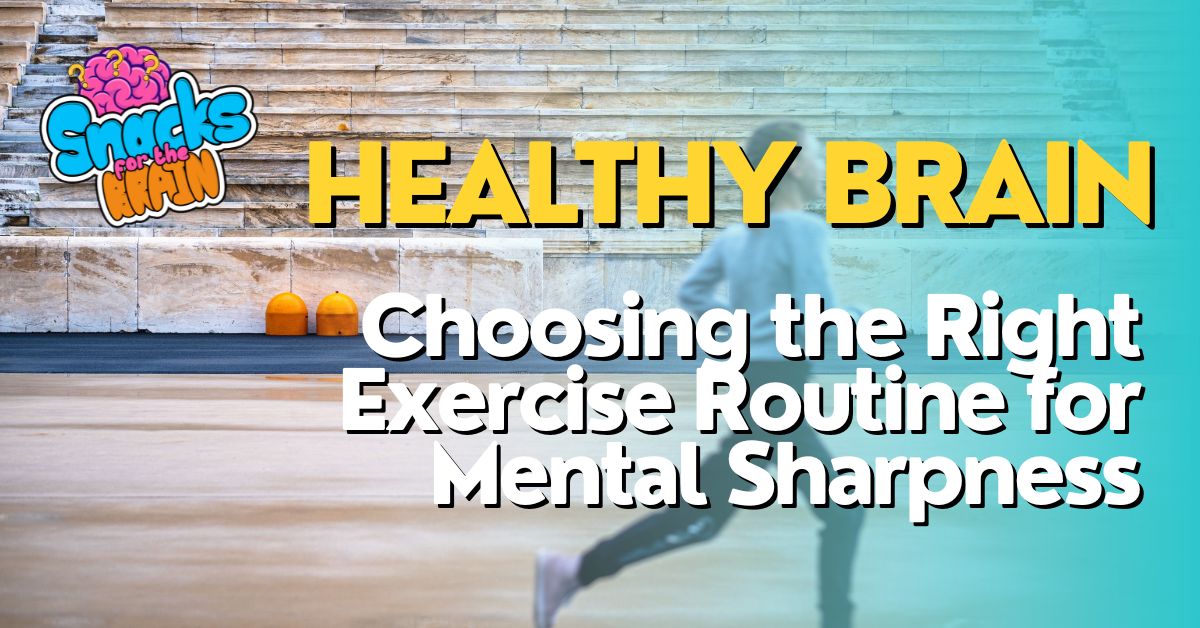Brain health and cognitive function are crucial aspects of overall well-being. The brain is responsible for controlling every aspect of our lives, from our thoughts and emotions to our physical movements. It is essential to prioritize brain health and take steps to maintain and improve cognitive function.
Lifestyle choices play a significant role in brain health. Factors such as diet, exercise, sleep, social interaction, and mental stimulation can all impact the health and function of the brain. By making conscious choices in these areas, we can support optimal brain health and cognitive function.
Key Takeaways
- Brain health and cognitive function are important for overall well-being.
- Aerobic exercise can boost brain health and cognitive function.
- Resistance training can build stronger brains and improve cognitive function.
- Yoga and mindfulness can benefit brain health by promoting calm and focus.
- High-intensity interval training is a quick and effective way to boost brain function.
Aerobic Exercise: Boosting Brain Health and Cognitive Function
Aerobic exercise has been shown to have numerous benefits for brain health. Regular aerobic exercise increases blood flow to the brain, which delivers oxygen and nutrients necessary for optimal brain function. It also promotes the growth of new neurons and strengthens existing connections between them.
In addition to its impact on brain health, aerobic exercise has been found to improve cognitive function. Studies have shown that regular aerobic exercise can enhance memory, attention, and problem-solving skills. It can also reduce the risk of cognitive decline and age-related conditions such as dementia.
Examples of aerobic exercises that can be incorporated into daily routines include brisk walking, jogging, swimming, cycling, and dancing. Aim for at least 150 minutes of moderate-intensity aerobic exercise or 75 minutes of vigorous-intensity aerobic exercise per week.
Resistance Training: Building Stronger Brains and Better Cognitive Function
Resistance training, also known as strength training or weightlifting, is another important component of a brain-healthy lifestyle. It involves using resistance or weights to build muscle strength and endurance. While resistance training is often associated with physical fitness, it also has significant benefits for brain health.
Research has shown that resistance training can improve cognitive function by increasing blood flow to the brain and promoting the growth of new neurons. It can also enhance executive functions such as attention, decision-making, and problem-solving.
Examples of resistance training exercises that can be incorporated into daily routines include weightlifting, bodyweight exercises, and resistance band workouts. Aim for two or more days of resistance training per week, targeting all major muscle groups.
Yoga and Mindfulness: The Benefits of Calm and Focus for Brain Health
Yoga and mindfulness practices have gained popularity in recent years for their numerous health benefits, including their positive impact on brain health. These practices involve a combination of physical postures, breathing exercises, and meditation techniques.
Yoga and mindfulness have been found to reduce stress and anxiety, improve mood, and enhance overall well-being. They also have significant benefits for brain health and cognitive function. Research has shown that regular yoga and mindfulness practice can increase gray matter volume in the brain, improve memory and attention, and enhance cognitive flexibility.
Examples of yoga and mindfulness practices that can be incorporated into daily routines include yoga classes or videos, meditation apps, deep breathing exercises, and mindful walking. Aim for at least 10-20 minutes of yoga or mindfulness practice per day.
High-Intensity Interval Training: A Quick and Effective Way to Boost Brain Function
High-intensity interval training (HIIT) is a form of exercise that involves short bursts of intense activity followed by periods of rest or lower-intensity exercise. HIIT has gained popularity in recent years due to its time efficiency and effectiveness in improving cardiovascular fitness.
In addition to its cardiovascular benefits, HIIT has been found to have significant benefits for brain health and cognitive function. Research has shown that HIIT can increase levels of brain-derived neurotrophic factor (BDNF), a protein that promotes the growth of new neurons and enhances cognitive function.
Examples of HIIT exercises that can be incorporated into daily routines include sprint intervals, circuit training, and Tabata workouts. Aim for two or more days of HIIT per week, alternating with aerobic and resistance training.
Brain Games and Puzzles: Keeping Your Mind Sharp and Active

Engaging in brain games and puzzles is another effective way to support brain health and cognitive function. These activities challenge the brain and stimulate neural connections, promoting mental agility and preventing cognitive decline.
Research has shown that regularly engaging in brain games and puzzles can improve memory, attention, and problem-solving skills. They can also enhance cognitive flexibility and reduce the risk of age-related conditions such as dementia.
Examples of brain games and puzzles that can be incorporated into daily routines include crossword puzzles, Sudoku, jigsaw puzzles, chess, and memory games. Aim for at least 15-30 minutes of brain games or puzzles per day.
Social Interaction: The Surprising Link Between Socializing and Brain Health
Social interaction is often overlooked when it comes to brain health, but research has shown that it plays a crucial role in maintaining cognitive function. Engaging in social activities and maintaining strong social connections can have significant benefits for brain health.
Studies have found that social interaction stimulates the brain, promotes the growth of new neurons, and enhances cognitive function. It can also reduce the risk of cognitive decline and improve overall well-being.
Examples of social activities that can be incorporated into daily routines include spending time with friends and family, joining clubs or organizations, volunteering, and participating in group activities or classes. Aim for regular social interaction to support brain health.
Sleep: The Essential Ingredient for Cognitive Function and Brain Health
Sleep is often undervalued but is essential for optimal brain health and cognitive function. During sleep, the brain consolidates memories, repairs damaged cells, and removes toxins. It is crucial to prioritize sleep and ensure an adequate amount of quality sleep each night.
Research has shown that sleep deprivation can impair cognitive function, including memory, attention, and problem-solving skills. It can also increase the risk of developing conditions such as Alzheimer’s disease.
Tips for improving sleep quality include establishing a regular sleep schedule, creating a relaxing bedtime routine, creating a sleep-friendly environment, and avoiding stimulants such as caffeine and electronics before bed. Aim for 7-9 hours of quality sleep per night.
Nutrition: The Role of Diet in Supporting Brain Health and Cognitive Function
Nutrition plays a vital role in brain health and cognitive function. The brain requires a constant supply of nutrients to function optimally. A diet rich in brain-healthy foods can support brain health and enhance cognitive function.
Research has shown that certain nutrients, such as omega-3 fatty acids, antioxidants, and vitamins B, C, D, and E, are particularly beneficial for brain health. These nutrients can reduce inflammation, protect against oxidative stress, and support the growth of new neurons.
Examples of brain-healthy foods that can be incorporated into daily diets include fatty fish (such as salmon), nuts and seeds, berries, leafy greens, whole grains, and dark chocolate. Aim for a balanced diet that includes a variety of nutrient-dense foods.
Putting It All Together: Creating a Brain-Healthy Lifestyle for Optimal Cognitive Function
Incorporating all of the above lifestyle choices into a daily routine can create a brain-healthy lifestyle that supports optimal cognitive function. By prioritizing aerobic exercise, resistance training, yoga and mindfulness practices, high-intensity interval training, brain games and puzzles, social interaction, sleep, and nutrition, you can enhance brain health and cognitive function.
The benefits of a brain-healthy lifestyle extend beyond cognitive function. By supporting brain health, you can also improve overall well-being, reduce the risk of age-related conditions such as dementia, and enhance quality of life.
To stay motivated and committed to a brain-healthy lifestyle, set realistic goals, track your progress, find activities you enjoy, and seek support from friends, family, or a healthcare professional. Remember that small changes can make a big difference over time, and consistency is key.
In conclusion, brain health and cognitive function are essential aspects of overall well-being. By making conscious choices in areas such as exercise, mindfulness, social interaction, sleep, and nutrition, you can support optimal brain health and enhance cognitive function. Prioritize brain health and create a brain-healthy lifestyle for a sharper mind and a healthier life.
If you’re interested in improving your cognitive function and boosting your brain health, you might also find this article on Intelligence’s N Hacks website helpful. They provide valuable insights and tips on various aspects of intelligence enhancement. One of their recent blog posts titled «13 Tips and Tricks to Memorize Faster and Remember What You Learned» offers practical advice on improving memory retention and recall. Check it out for more strategies to optimize your brain’s potential. (source)
FAQs
What are the best exercises for brain health and cognitive function?
The best exercises for brain health and cognitive function include aerobic exercises, strength training, yoga, and meditation.
How does aerobic exercise benefit the brain?
Aerobic exercise benefits the brain by increasing blood flow and oxygen to the brain, promoting the growth of new brain cells, and improving cognitive function.
What are the benefits of strength training for the brain?
Strength training benefits the brain by improving cognitive function, increasing the production of growth factors that promote brain health, and reducing the risk of cognitive decline.
How does yoga benefit the brain?
Yoga benefits the brain by reducing stress and anxiety, improving mood, and increasing mindfulness and focus.
What are the benefits of meditation for the brain?
Meditation benefits the brain by reducing stress and anxiety, improving mood, increasing mindfulness and focus, and promoting the growth of new brain cells.




